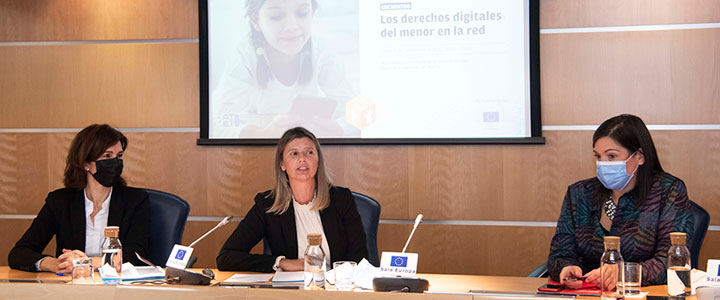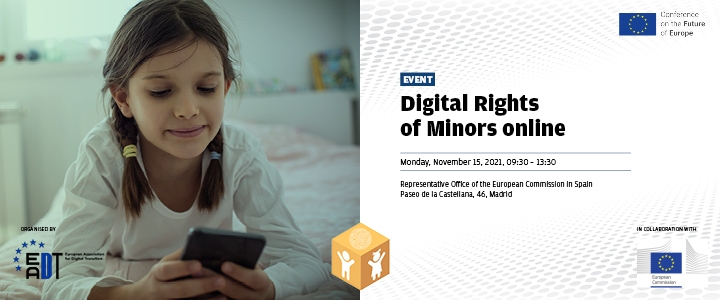November 20 is World Children’s Day. To mark the date, as in other years, the European Association for Digital Transition (EADT) held a discussion session in Madrid on the digital rights of minors. New in 2024 is that the event arose from an agreement between the European Association for Digital Transition and the public business institution Red.es, within the framework of the Digital Rights observation area and aimed at promoting the Digital Rights Charter.
Read more“We must demand ethical, civil and criminal responsibility from big online platforms”











